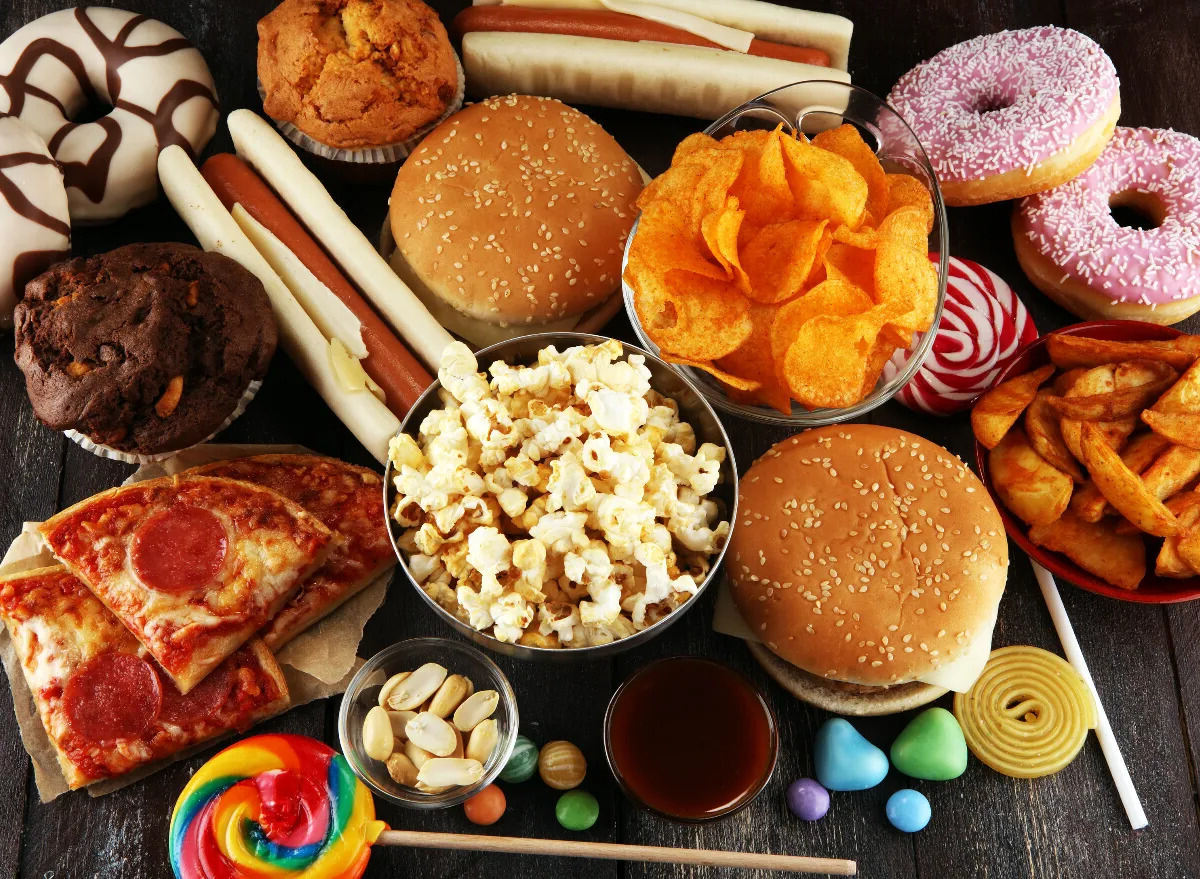
Ever wondered what secrets lie behind the delicious meals we enjoy? Whether you're a seasoned chef or someone who can barely boil water, there's always something new to learn in the kitchen. Cooking facts are not just tidbits of information; they're nuggets of gold that can transform your culinary skills from meh to marvelous. From the science of baking to the history behind your favorite dishes, these facts are sure to spice up your food knowledge. So, why not whet your appetite for learning with some intriguing cooking facts? After all, knowledge is as crucial to cooking as the freshest ingredients. Ready to become a kitchen whiz? Let's get cracking and uncover 22 cooking facts every foodie should know.
Key Takeaways:
- Cooking is an art that transforms ingredients into something greater, like caramelizing onions and fermenting yogurt for unique flavors and health benefits.
- Home cooking has health benefits, from controlling ingredients to encouraging balanced diets, and cooking shows have made it more accessible and enjoyable.
Cooking Techniques That Transform Ingredients
Cooking isn't just about combining ingredients; it's an art form that transforms them into something greater. Techniques like caramelization and fermentation bring out new flavors and textures, making dishes more complex and enjoyable.
-
Caramelization is not merely browning; it's a chemical reaction where sugars break down under heat, developing a rich, sweet, and nutty flavor. This technique can elevate simple ingredients like onions and carrots into caramelized delights.
-
Fermentation might sound advanced, but it's an age-old process that enhances food's digestibility and nutritional value. Foods like yogurt, kimchi, and sourdough bread owe their unique flavors and health benefits to fermentation.
The Science Behind Baking
Baking is as much a science as it is an art. Precise measurements and understanding the roles of ingredients can lead to perfect cakes, cookies, and bread every time.
-
Gluten development is crucial for the texture of baked goods. Kneading dough develops gluten strands, giving bread its structure and chewiness.
-
Chemical leaveners, such as baking soda and baking powder, release gases when they react with moisture and acids, causing doughs and batters to rise. This is why precise measurements are vital in baking.
Global Cooking Traditions That Influence Modern Cuisine
Culinary traditions from around the world have shaped modern cuisine, introducing a variety of flavors and techniques.
-
Stir-frying, a technique originating from China, uses high heat and quick cooking to preserve the texture and nutrients of vegetables and meats.
-
Slow cooking, a method embraced by many cultures, allows tough cuts of meat to become tender and flavors to deepen over time. Dishes like French coq au vin and Indian curry exemplify the beauty of slow cooking.
The Importance of Fresh Ingredients
The quality of ingredients significantly affects the outcome of your cooking. Fresh, high-quality ingredients can elevate a dish from good to extraordinary.
-
Seasonal produce not only tastes better but also has a higher nutritional value. Eating seasonally supports local farmers and reduces the carbon footprint associated with transporting food.
-
Herbs and spices should be fresh or properly stored to maintain their potency. Ground spices lose their flavor quickly, so grinding them as needed can make a big difference in a dish's flavor profile.
Cooking Myths Busted
Not everything we hear about cooking is true. Some widely held beliefs have been debunked by culinary experts.
-
Searing meat does not "seal in" moisture as commonly believed. It does, however, create a flavorful crust through the Maillard reaction.
-
Rinsing pasta after cooking is not recommended for most dishes. The starch on the surface of pasta helps sauces cling to it, making the dish more flavorful.
Health Benefits of Cooking at Home
Cooking at home has numerous health benefits, from controlling ingredients to encouraging a balanced diet.
-
Control over ingredients allows for healthier choices, reducing the intake of processed foods and added sugars.
-
Meal planning can lead to more balanced diets and reduce the temptation to opt for fast food. Cooking at home encourages the consumption of a variety of fruits, vegetables, and whole grains.
The Evolution of Cooking Equipment
Advancements in cooking equipment have made preparing meals easier and more efficient.
-
Pressure cookers reduce cooking time significantly by creating a high-pressure environment that speeds up the cooking process.
-
Sous vide machines allow for precise temperature control, resulting in perfectly cooked meats and vegetables every time.
Cooking as a Form of Expression
Cooking is not just about nourishment; it's a way to express creativity and share culture.
-
Plating techniques can transform a simple dish into a work of art, enhancing the dining experience.
-
Fusion cuisine demonstrates how blending culinary traditions from different cultures can result in innovative and delicious dishes.
The Role of Cooking in Social Gatherings
Food has always played a central role in social gatherings, fostering connections and creating memories.
-
Cooking for others is an act of love and generosity. Sharing a meal can bring people closer together, bridging cultural and personal differences.
-
Food traditions during holidays and celebrations are a way to pass down cultural heritage and create a sense of belonging.
Sustainable Cooking Practices
Sustainable cooking practices can help reduce our environmental impact while enjoying delicious meals.
-
Reducing food waste by using leftovers creatively or composting can lessen the amount of waste sent to landfills.
-
Choosing sustainable seafood and locally sourced meats and produce supports environmentally friendly farming and fishing practices.
The Impact of Cooking Shows on Home Cooking
Cooking shows have inspired many to explore new recipes and techniques, making home cooking more accessible and enjoyable.
-
Celebrity chefs and cooking competitions have demystified complex cooking techniques, encouraging viewers to try new dishes at home.
-
Online cooking tutorials offer step-by-step guidance, making it easier for beginners to learn and for experienced cooks to expand their repertoire.
Savoring the Essence of Culinary Wisdom
We've journeyed through a smorgasbord of culinary facts, each more tantalizing than the last. From the surprising origins of your favorite dishes to the science behind the flavors we love, these tidbits are more than just trivia—they're a gateway to appreciating the art and science of cooking on a whole new level. Armed with these insights, foodies can not only impress friends at dinner parties but also enhance their cooking skills, experimenting with newfound knowledge to elevate everyday meals into extraordinary experiences. So, next time you're in the kitchen, remember these facts. They're not just fun to know; they're stepping stones to becoming a more informed, creative, and skilled culinary enthusiast. Let's keep exploring, tasting, and learning, for the world of food is vast and full of wonders waiting to be discovered.
Frequently Asked Questions
Was this page helpful?
Our commitment to delivering trustworthy and engaging content is at the heart of what we do. Each fact on our site is contributed by real users like you, bringing a wealth of diverse insights and information. To ensure the highest standards of accuracy and reliability, our dedicated editors meticulously review each submission. This process guarantees that the facts we share are not only fascinating but also credible. Trust in our commitment to quality and authenticity as you explore and learn with us.


